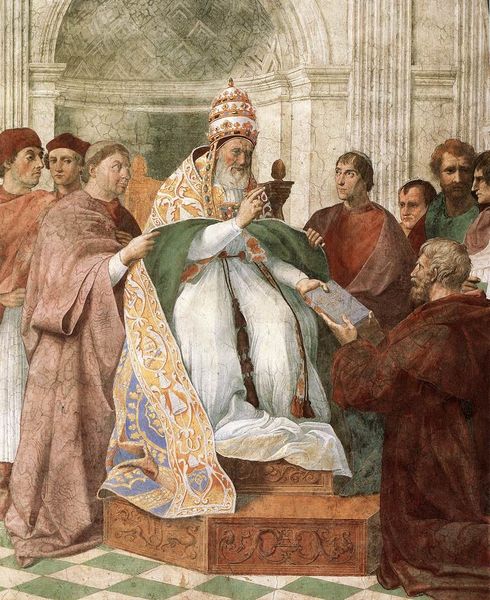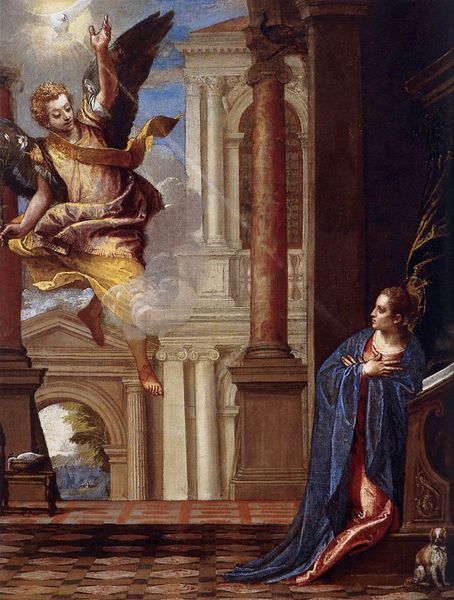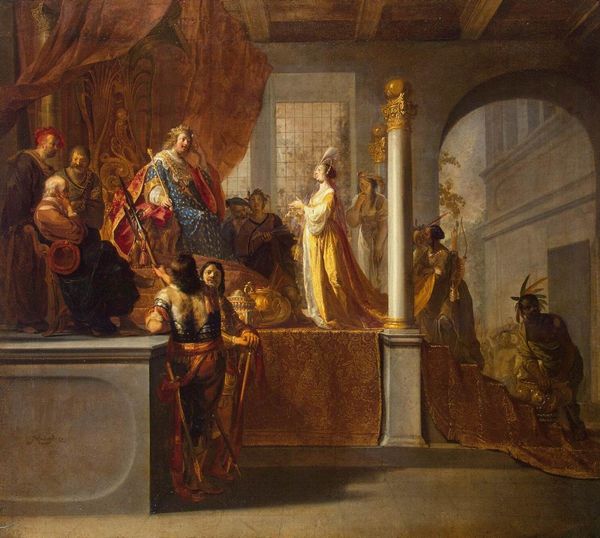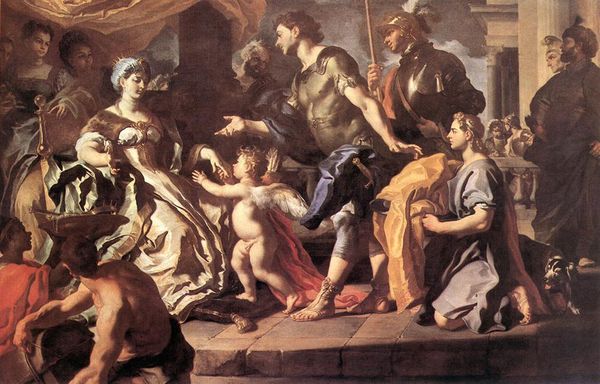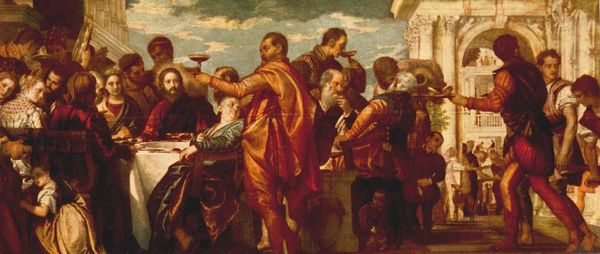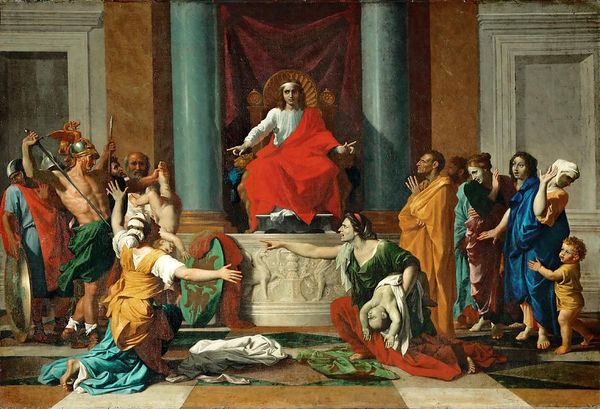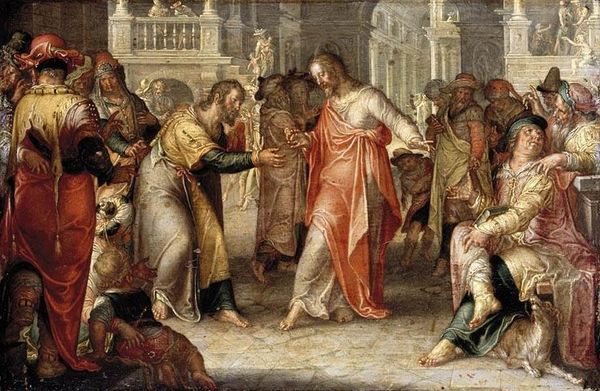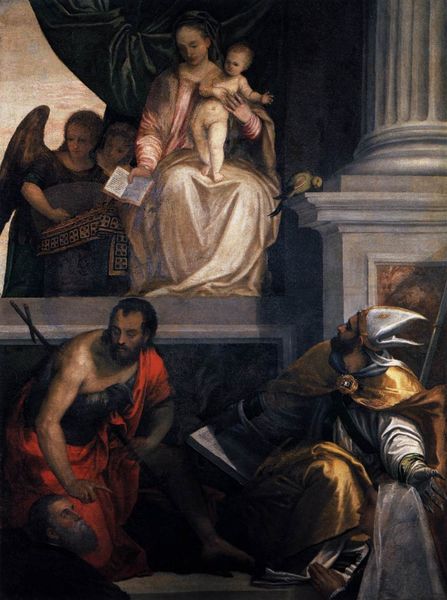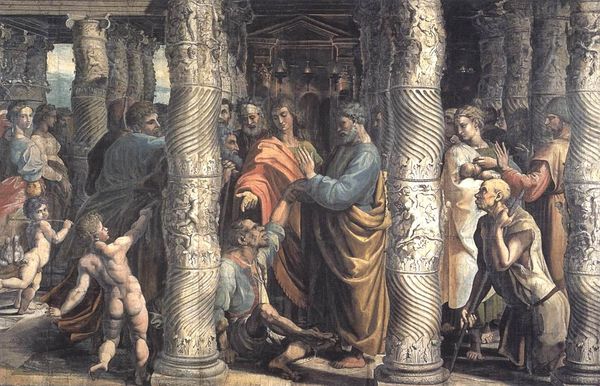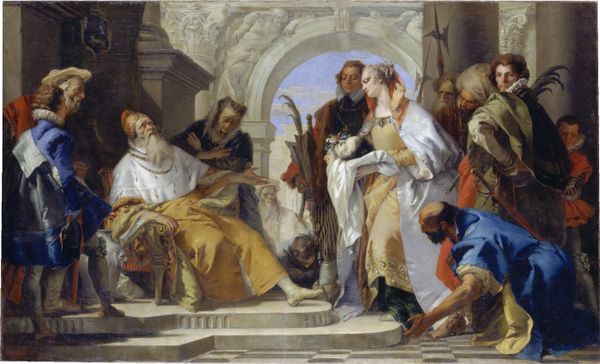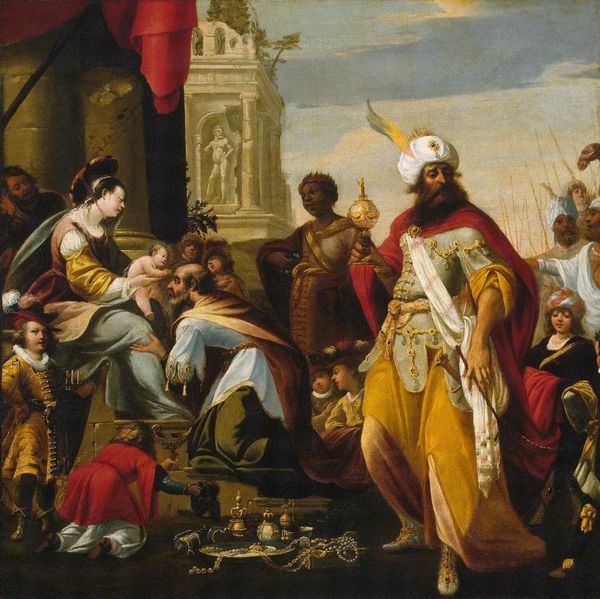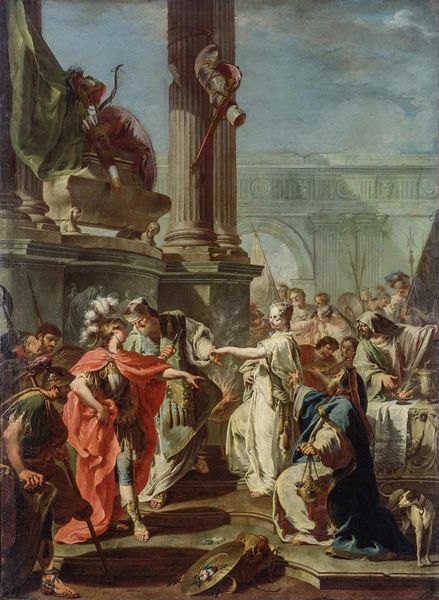
painting, oil-paint
#
portrait
#
venetian-painting
#
narrative-art
#
baroque
#
painting
#
oil-paint
#
figuration
#
oil painting
#
christianity
#
history-painting
#
italian-renaissance
Dimensions: 198 x 306 cm
Copyright: Public domain
Paolo Veronese painted "The Fainting of Esther" in oil on canvas in the 16th century. Here, the application of oil paint allows for the rich color and detail that define the work, but it is the textiles, which clothe the figures in sumptuous fabrics, that truly capture the eye. The weight and texture of velvet, silk, and brocade are all rendered with a high degree of skill, yet they also speak to wider social issues of labor and consumption. Consider the amount of work involved in the production process, from the cultivation of raw materials to the weaving and dyeing of cloth, the embellishment with embroidery, and the construction of complex garments. Each stage involved extensive manual labor. The luxurious appearance of the materials is inextricably tied to the social and economic systems that made them possible, revealing the connection between fine art and craft and deepening our understanding of this artwork.
Comments
No comments
Be the first to comment and join the conversation on the ultimate creative platform.

